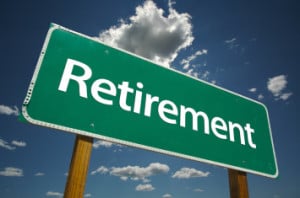 West Essex area investors preparing for or living in retirement need to plan for the expected while preparing for the unexpected — and position their investment portfolios for both, says Greg Moore, an Edward Jones financial adviser in Upper Montclair.
West Essex area investors preparing for or living in retirement need to plan for the expected while preparing for the unexpected — and position their investment portfolios for both, says Greg Moore, an Edward Jones financial adviser in Upper Montclair.
How can one plan for the expected?
“First, envision your retirement lifestyle,” Moore says. “Do you plan on traveling the world? Or will you stay close to home, volunteering and pursuing your hobbies? Or perhaps you’ll even work part-time in some capacity.”
Once investors know what their retirement might look like, they can put a “price tag” on it, even if it’s only an estimate, he says.
“Try to contribute as much as possible to your retirement accounts, such as your 401(k) and your IRA,” Moore says. “Then, as you near retirement, you’ll have to calculate how much you can withdraw from your portfolio each year without running out of money and determine if your spending habits are suitable for the amount of income you can count on from your retirement plans, Social Security and other sources.”
As far as the “unexpected” factors — those variables that will affect one’s retirement costs and lifestyle — investors should consider:
- Inflation: Over time, even a relatively mild inflation rate can decrease one’s purchasing power and erode the value of investments, particularly the fixed-income
ones. - Market volatility: No one can really predict when the financial markets will move up or down, or how big these movements will be, but they will occur, and could affect an unbalanced portfolio.
- Health care: As one gets older, health care costs almost certainly rise, but the size of this increase is difficult to forecast.
- Longevity: One doesn’t know exactly how long he or she will live, but longevity will have a big impact on spending and investment decisions during retirement.
Moore says investors can position their portfolios for the expected and unexpected by achieving balance, specifically balancing the needs for growth and income.
“During your working years, you may need to focus more on growth-oriented investments, within the context of your individual risk tolerance, your time horizon and your specific goals,” Moore says. “Even when you retire, you”ll need growth potential in your portfolio to cope with inflation and rising health care costs.”
Retirees also have to think a lot more about their spending decisions, Moore says, so they will need a certain percentage of their portfolio devoted to income-oriented vehicles.
“Your financial advisor can help you find the right balance in your investments, both before and during retirement,” Moore says. “And along the way, you’ll likely need to adjust your portfolio in response to changes in your life. But if you keep the big picture in mind by planning for the expected while preparing for the unexpected, you can work toward achieving the retirement that you’ve envisioned and
that you deserve.”

